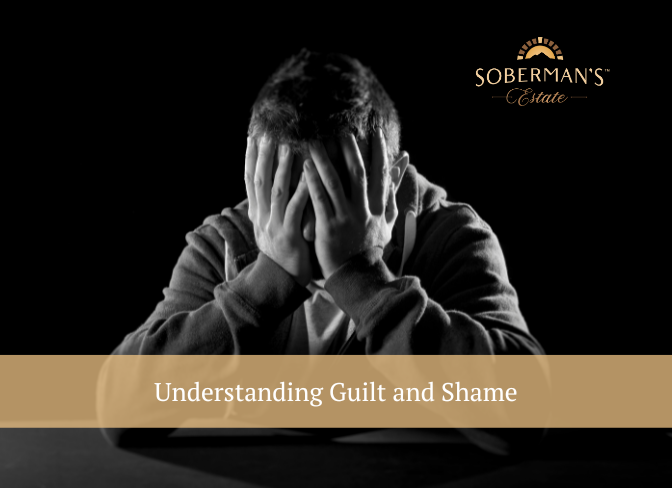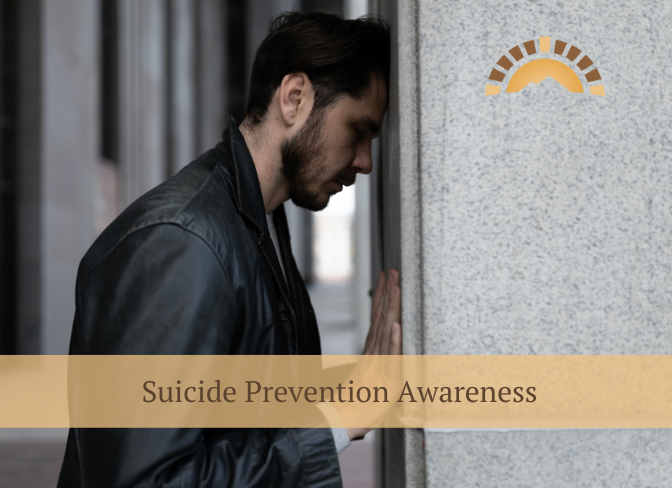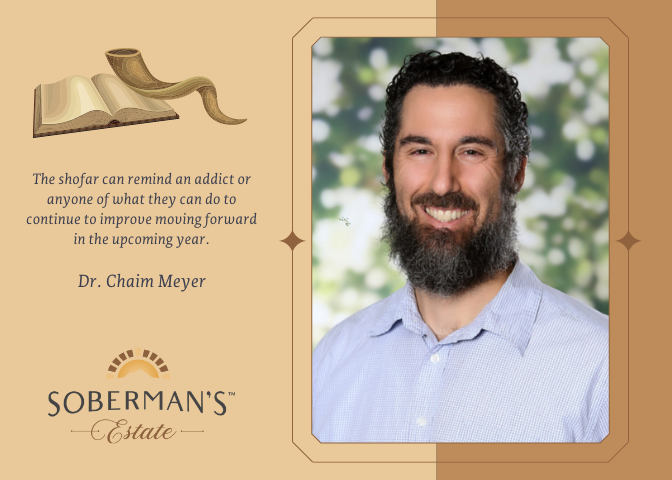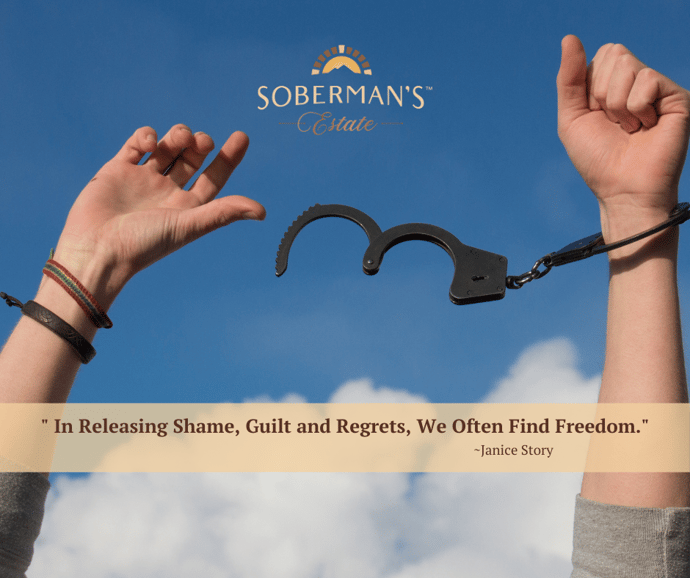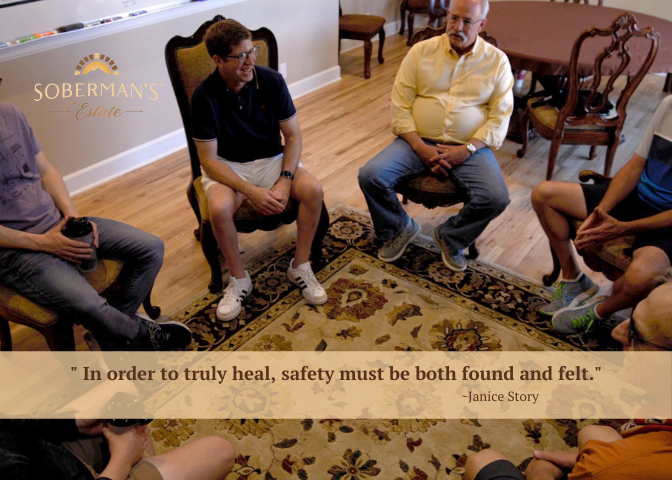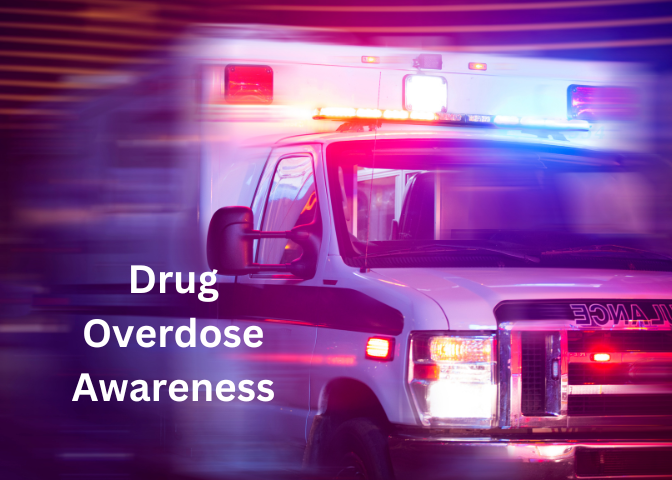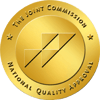September is Pain Awareness Month, a time dedicated to increasing understanding and empathy around all kinds of pain, including the emotional and psychological suffering many of us go through. When it comes to emotional pain, guilt and shame often take center stage, becoming overwhelming barriers in the path to recovery.
- Home
- >
- The Estate News & Blog
Understanding Guilt, Shame & Emotional Pain During Treatment
Topics: Addiction, Recovery, Substance Abuse, Healthy
Navigating the Silent Struggle: A Message for Suicide Awareness Month
Hello, I'm Janice, part of the dedicated team at Soberman’s Estate specializing in Equine Therapy and Mindfulness Coaching. I’ve been sharing thoughts and insights through our blog for a year now, and today’s post is particularly close to my heart. September marks National Suicide Awareness Month, and I'm compelled to share a deeply personal perspective, rather than statistics or data points.
Topics: Addiction, Treatment, Intervention, Mental Health
Shofar's Call: A Rosh Hashanah Guide to Renewal for those in Recovery
As we approach Rosh Hashanah, the Jewish New Year, there are so many messages that one can take hold of. There are also a preponderance of symbols which mark the New Year. One of the most famous is the Shofar (Ram’s Horn). Blowing the ram’s horn or shofar on Rosh Hashanah comes directly from the Torah/Old Testament.. There is a commandment that on the first day of the seventh month (Tishrei) “you shall observe complete rest, a sacred occasion commemorated with loud blasts.” These loud blasts were understood to allude to the blasts of the shofar. There are a number of reasons that are indirectly given as to why we blow the shofar on Rosh Hashanah. Rabbi Saddia Gaon, a famous commentator from Egypt, listed 10 reasons why the shofar is blown. Three in particular can really speak to those in recovery, those struggling with addiction or those who are impacted by addiction; 1) the beginning of the new year 2) the Mt. Sinai experience 3) the destruction of the Holy Temple in Jerusalem.
The beginning of the new year is a natural fit. Newness allows us to reset and move forward and not stay stuck in the past. As we know, we can’t go back one second let alone a week, month, or year. By blowing the shofar, we are reminded of the beginning which allows us to reset. In 12 step programs people receive something for their yearly sobriety. It gives them an opportunity to look back on the past year and see where the successes and failures were. What needs to be strengthened and what is on solid ground. The shofar can remind an addict or anyone of what they can do to continue to improve moving forward in the upcoming year.
The second reason from Rabbi Gaon deals with Mt. Sinai. There is an idea that the shofar integrates the spiritual and physical as it comes from an animal and was the very sound that was given at Mount Sinai when the Israelities received the 10 Commandments. Becoming sober from physical addictions starts with our spiritual well being. It is almost impossible to become sober without tapping into your spirituality. Our goal in this world is to integrate the physical with our spiritual and in turn to elevate the physical into something spiritual. Whether you see yourself as a physical being having a spiritual experience or a spiritual being having a physical experience, one must tap into their spiritual side to navigate the road ahead. Whether one is a struggling addict or a person trudging the road of life, we know the importance of integrating our physical, spiritual, mental and emotional components to be successful in everything that we will experience on the long and winding road.
The third reason that Rabbi Saddia Gaon mentioned for blowing the shofar, the destruction of the Temple, is a great reminder for addicts. The destruction that our addiction inflicted upon those around us needs to be subtly reminded. No one lives in a vacuum and everything we do has an impact on those around us. Whether it is a loss of a job, emotional neglect towards those we love, financial destruction, physical scars that have or haven’t healed or anything else. The addiction caused chaos. One does not need to live in a place of guilt or perpetual suffering but, it is important to have a reminder once in a while of the consequences of our actions. This can speak to anyone, not only those that have struggled with addiction.
Whether one celebrates Rosh Hashanah or not the symbol of the shofar can relate to all of those that are working on their sobriety.
Soberman's Estate is a residential men's addiction treatment center that provides discreet, individualized, sophisticated recovery and wellness services for adult men that want to recover from substance use disorders, and or other behavioral issues such as trauma, anxiety, depression, stress, or other addictions.
Labor Day Reflections: How Addiction Impacts the Workforce
Labor Day is a time to celebrate the achievements of People in our workforce, and recognize the value of hard work and dedication. However, as we relax on this long weekend, it's also essential to consider the challenges that many workers face, particularly those affected by addiction. Addiction, whether to drugs, alcohol, or other substances, casts a long shadow over the workforce, impacting individuals, their families, and businesses in profound ways.
Topics: Addiction, Substance Abuse, Impaired Professional
National Recovery Month: The Impact of Residential Treatment Centers
As the golden hues of September embrace us, the national spotlight shifts to a cause of immense importance: National Recovery Month. For those unfamiliar, National Recovery Month is observed every September in the United States. It celebrates the gains made by those in recovery and sheds light on the positive impact that effective treatments can offer. This month, we can look into the unparalleled significance of residential treatment centers in the recovery journey.
From Addiction to Recovery: Letting Go of Shame, Guilt, and Regret
The intricate, winding path of addiction is often accompanied by the heavy weights of shame, guilt and regret. Making the transition from addiction to sobriety can be as much about healing our inner world as it is about breaking free from the physical and mental bonds of substance use. Below are some insights and steps that may help in releasing these burdens and embracing the new chance at life that recovery offers.
Topics: Addiction, Treatment, Recovery, Healthy, Mental Health
The Importance of Creating Safety for those in Residential Treatment
My name is Janice Story, I am the Equine and Meditation Coach at Soberman’s Estate. I know from my own personal experiences, that you cannot heal if you don’t feel safe in your surroundings or in your own body. I also understand how challenging it can be to recognize and find safety. When it comes to addiction treatment, the environment in which an individual recovers can significantly influence their journey to sobriety. In particular, the creation of a safe space within a residential treatment center can have profound effects on the recovery process. As leaders in alcohol and substance abuse treatment, we understand the crucial role such a setting plays and incorporate it into every aspect of our care model.
Dutch: A Year of Healing with Soberman's Therapy Tortoise
Dutch Michaelangelo Soberman “Dutch”, our beloved therapy tortoise, has been a member of our therapeutic team at Soberman's Estate for over a year now. He was introduced to us by Psychiatrist and Medical Expert, Dr. Michael Vines. Dr. Vines has been with Soberman’s Estate since 2019 and it was that year that he found Dutch, and at that time Dutch could fit comfortably in the palm of his hand.
Topics: Treatment, Recovery, Mental Health, mindfulness
International Overdose Awareness Day: Unmasking the Silent Epidemic
The Founder of Soberman’s Estate created this treatment center in honor of his brother Jeff Prager who passed away from an accidental opioid overdose in 2010.
Celebrating International Self-Care Day on the Path to Recovery
Many alcoholics and addicts are selfish. They may not be aware of this, but the simple act of being under the influence is selfish and self-centered as they are not emotionally present for others. Other than being selfish about one’s sobriety, being selfish is not beneficial to recovery.


